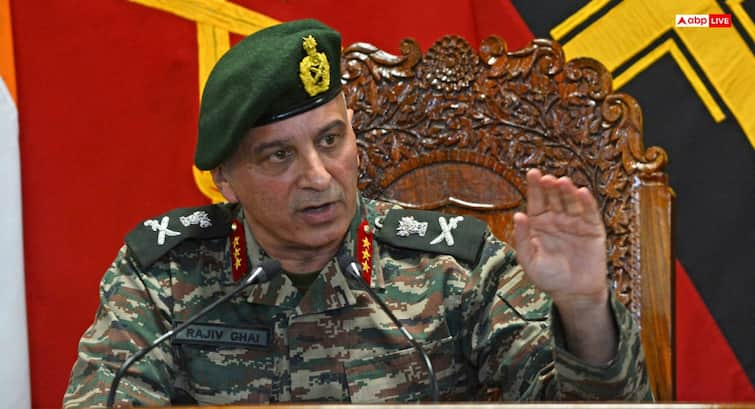Director General Military Operations (DGMO) Lt General Rajiv Ghai, speaking at the United Nations Troop Contributing Countries’ (UNTCC) Chiefs’ Conclave, has revealed that Pakistan sought a cessation of hostilities in just 88 hours following India’s decisive military and strategic response, dubbed Operation Sindoor. Lt Gen Ghai stated that the swift capitulation from Islamabad affirmed India’s political and military objectives, warning that “further conflict would have been catastrophic” for Pakistan.
The DGMO underscored that Operation Sindoor was the manifestation of a fundamental change in India’s strategy for tackling terrorism, a shift articulated by the Prime Minister.
“There has been a doctrinal shift in our strategy against terror. Our Prime Minister has spoken about it. And these are the three things he said. The terror attacks are an act of war. And there will be decisive retaliation. We will not succumb to nuclear blackmail. And there is no distinction between terrorists and sponsors of terrorism…” Lt General Rajiv Ghai remarked, as per news agency ANI.
The operation was launched in response to the brutal Pahalgam terror attack on April 22, where sponsored terrorists from across the Line of Control (LoC) killed 26 innocent tourists after singling them out by community. Though the Kashmir Resistance Front initially claimed the attack, “they realised that matters had possibly gone beyond their control, and they immediately withdrew,” Lt Gen Ghai noted.
He stressed that even though “Everybody knew that a response was inevitable,” India took its time, carrying out “certain precautionary deployments on our borders to make sure that the enemy was deterred.”
Tri-Service Action and Precision Strikes
Lt Gen Ghai provided details on the multi-dimensional scope of Operation Sindoor, which targeted nine terror sites across the breadth of Pakistan and involved the Army, Air Force, and Navy.
“The Indian Navy was also in action… The Navy had sailed into the Arabian Sea and when the DGMO spoke, they were very well poised. Had the enemy decided to take it any further, it could have been catastrophic for them and not only from the sea but from other dimensions,” the DGMO said.
#WATCH | Delhi | Director General Military Operations Lt Gen Rajiv Ghai says, “The Indian Navy was also in action… The Navy had sailed into the Arabian Sea and when the DGMO spoke, they were very well poised. Had the enemy decided to take it any further, it could have been… pic.twitter.com/lK5dhQkHY6
— ANI (@ANI) October 14, 2025
“We hit 11 of their air bases… Eight air bases, three hangars and four radars were damaged. Pakistani air assets were destroyed on the ground… One C-130 class of aircraft and one AEW, four to five fighter jets, and there were assets that were also destroyed in the air,” he confirmed.
‘We Did Not Let Them Rest’: DGMO Ghai On Pahalgam Attackers
He also presented visuals of strikes on high-value terror hubs, including Muridke, the headquarters of the Lashkar-e-Taiba, and Bahawalpur. He stated that in the strikes carried out in the early hours of May 7, “more than 100 terrorists were neutralised.
#WATCH | Delhi | Director General Military Operations Lt Gen Rajiv Ghai says, “If we come down to Muridke. This is the terror hub of the Lashkar-e-Taiba. That’s the Indian Air Force strike you can see on the screen right on top. The before and after pictures, some high-value… pic.twitter.com/W0H1peEvd8
— ANI (@ANI) October 14, 2025
Regarding the three perpetrators of the Pahalgam attack itself, the DGMO stated during a 96-day chase, “We did not let them rest.” He observed that they “seemed as if they were exhausted from running, and they also seemed very malnourished.”
The DGMO described the response as “a fusion of military precision and diplomatic agility, informational superiority and economic leverage.” He specifically pointed to the suspension of a key bilateral pact, “I’m speaking about the Indus Water Treaty of 1960 being put into abeyance the moment the terror attack was perpetrated at Pahalgam.”
Pakistanis Unwittingly Let Out Their Awards List, Their Casualties On Loc In Excess Of 100: Lt Gen Rajiv Ghai
He further stated that Pakistan’s own actions inadvertently revealed the true extent of its losses. Following cross-border firing, he said, “Pakistanis possibly unwittingly let out their awards list last month on the 14th of August, and the number of posthumous awards that they awarded suggests to us now that their casualties on the LoC were also in excess of 100.”
Reflecting on the history of cross-border terrorism, Lt Gen Ghai stated that since the late 1980s, Jammu and Kashmir has witnessed “more than 28,000 terror incidents,” leading to “more than 100,000 people from the minorities who have been compelled to move out of Jammu and Kashmir, a migration of more than 60,000 families.” He concluded with the total count of those killed by Pakistan-sponsored terrorism: “15,000 innocent civilians and more than 3,000 security personnel have been killed, and it’s very clear where this is coming from.”


